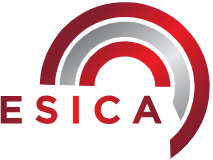Zero waste is a comprehensive approach to waste management that seeks to eliminate waste wherever possible, encouraging the redesign of resource life cycles so that all products are reused. Workshops focused on this strategy play a crucial role in educating participants about the principles and applicability of zero waste in real-world scenarios, thereby fostering sustainable living.
The workshops begin by defining the zero waste concept, explaining the five basic principles that underpin this approach: refuse, reduce, reuse, recycle, and rot. By elaborating on these principles, the sessions help participants understand how they can implement zero waste strategies in their daily lives. This foundational knowledge is crucial for both appreciating the benefits of zero waste and recognizing the role of human actions in waste creation.
Interactive activities are integral to these workshops, enhancing the learning experience and helping to cement the zero waste principles in practical terms. For example, participants might engage in a Zero Waste Scavenger Hunt, where they sort common household items into categories like “Zero Waste,” “Recyclable,” and “Waste.” Such activities not only educate but also challenge participants to think critically about the waste they generate and how it can be minimized.
Furthermore, the workshops delve into more advanced zero waste practices through group discussions and hands-on sessions that focus on specific waste reduction methods such as composting organic matter or crafting reusable household items from waste materials. These practical applications demonstrate the versatility and impact of zero waste practices, showing participants that sustainable living is achievable and beneficial.
By the end of these sessions, participants are not just informed about zero waste principles; they are also equipped with practical skills and motivated to implement these strategies in their communities. This empowerment is crucial, as it transforms knowledge into action, leading to tangible environmental benefits and fostering a culture of sustainability.
Overall, zero waste workshops provide a robust foundation for understanding and applying zero waste principles, offering practical strategies that participants can carry into their everyday lives. Through education, hands-on practice, and community engagement, these workshops contribute significantly to the broader goal of sustainable development.






